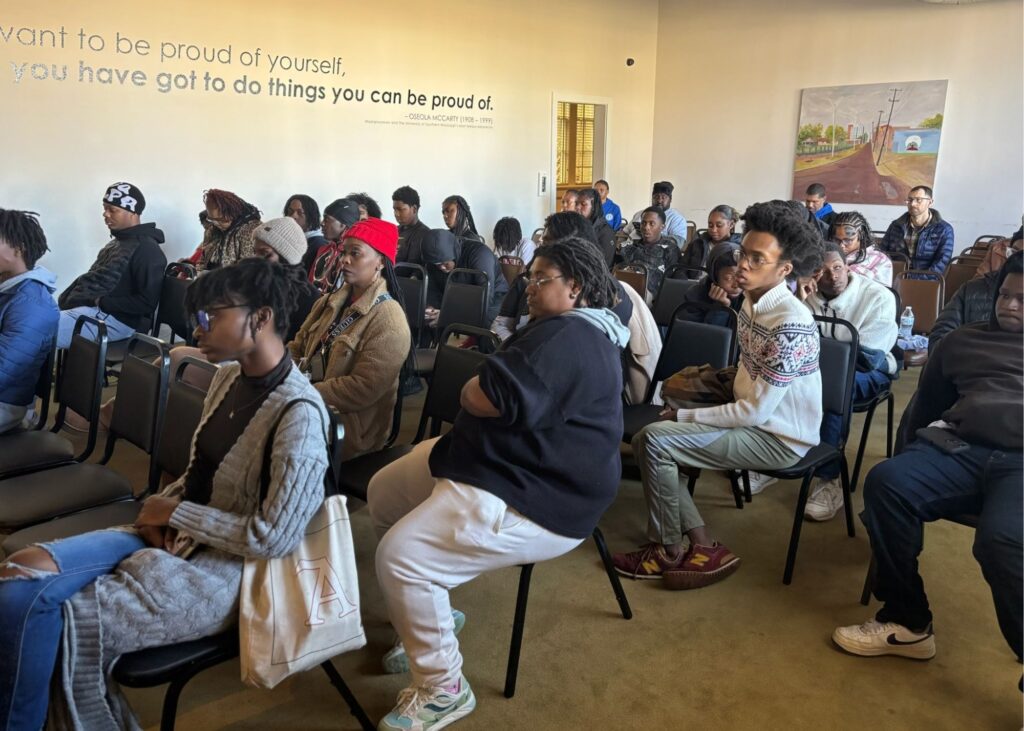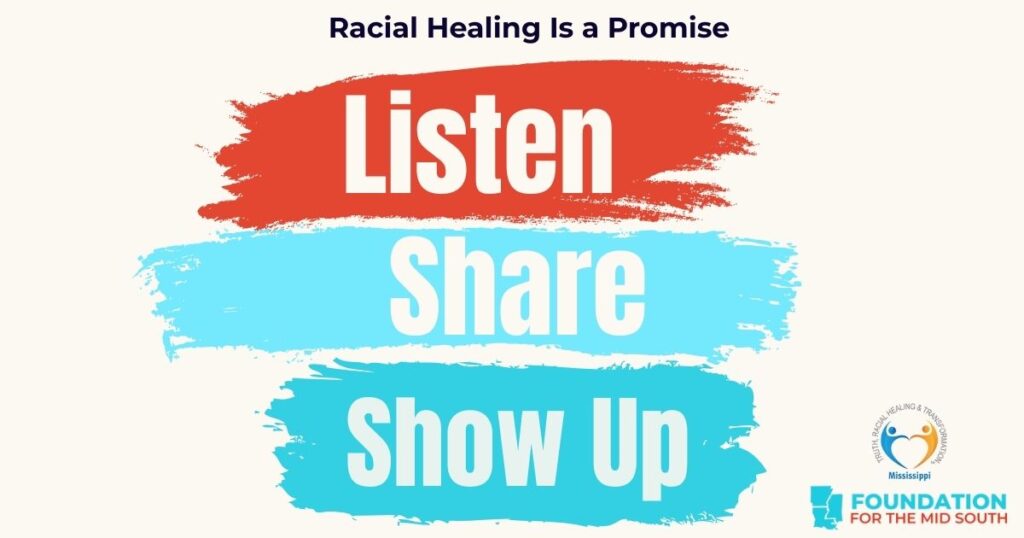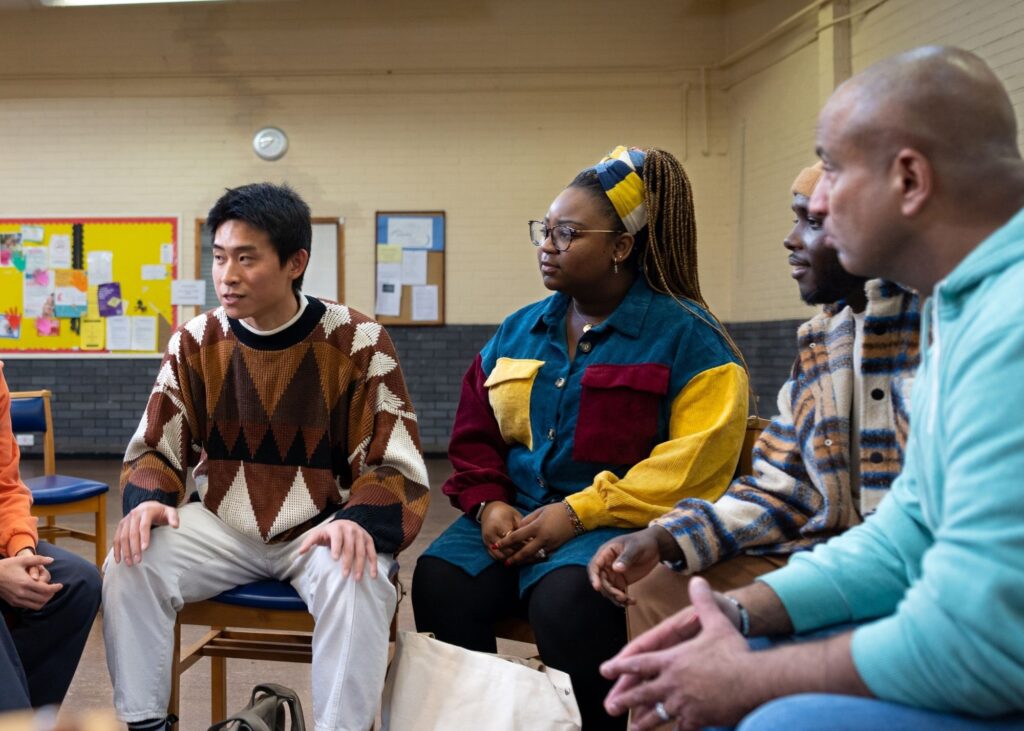By Derykah Watts, Social Justice Coordinator, Foundation for the Mid South
The world feels more divided than ever along lines of race, religion, and politics. Watching the news can be overwhelming. Most evenings, I make myself sit through a one-hour broadcast, and by the end, I’m drained and wondering why I even bother keeping a television. With so much information at our fingertips, I sometimes wish I had never signed up for social media. On the hardest days, I catch myself daydreaming about unplugging everything and living under a rock like a cartoon character, just to escape the noise, the pain, and the weight of it all.
That weight is real. It sits heavy on our shoulders, piling on with each headline, each injustice, each reminder of how far we still have to go. The divisions we see today did not suddenly appear in 2020 with the Black Lives Matter movement. They have been around for centuries, from the Mongols in Asia to the Bantus in Africa to the Aztecs in the Americas. This did not start with us. But it can end with us.
Working with Truth, Racial Healing, and Transformation (TRHT) reminds me that this heaviness is not the only truth. As a third-generation Mississippian, I know the world is not as hopelessly divided as it sometimes looks. Our history is full of division, yes, but also of resilience, community, and transformation.
For too long, the idea of racial hierarchy has assigned false value to human life, suggesting that someone is smarter, stronger, or more deserving simply because of race or culture. But racial healing begins with a different truth: that we all bleed, we all feel, and we all hope. What sets us apart are our lived experiences, stories shaped by joy, pain, and everything in between.
Listening to those stories with empathy and humility is where healing begins. It happens in the quiet moments of connection, when we slow down, open our ears, and really hear one another. Racial healing is not just a nice idea, it is a necessity. Because deep down, we all want the same thing: a better future for ourselves, our families, our neighbors, and our communities. Mississippi knows resilience. We know how to gather on porches, in churches, in classrooms, and in town halls to tackle hard things together. We know that our past does not have to define our future.

The Mississippi TRHT initiative is more than a program. It is a movement. It is a commitment to rewriting the narrative of our state, one conversation, one community, one courageous act at a time. Through training and engagement, TRHT equips leaders not only to spark conversations about racial healing, but also to dismantle the systems that reinforce inequality.
The TRHT framework rests on five pillars: Narrative Change, Racial Healing, Law, Separation, and Economy. Each addresses a different aspect of systemic racism and helps guide communities toward equity and understanding. Narrative Change challenges the stories we have been told and the ones we tell ourselves. Racial Healing fosters connection and empathy. Law looks at the policies that uphold injustice. Separation confronts the physical and social divides still present in our communities. And Economy shines a light on disparities in wealth and opportunity.
This work is not easy. It takes honesty, courage, and the willingness to sit with discomfort. But it also offers hope, hope rooted in action, in community, and in the belief that Mississippi can lead the way. Our past shapes us, but it does not have to define us. Mississippi has the heart, the grit, and the soul to prove it.
Through TRHT, we are planting seeds of healing, seeds that will grow into a future where every Mississippian is seen, valued, and heard.
So, when the weight of the world feels too heavy, I remind myself of this: healing is happening. Change is coming. And Mississippi is rising.



